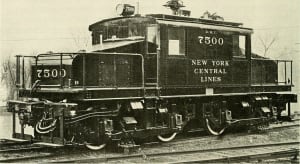The National Anti-Monopoly League
By Kristopher A. Nelson
in
April 2015
300 words / 2 min.
Tweet
Share
There are times when certain conflicts of the 1880s and 1890s seem eerily similar to debates today – we are, it seems, both separated and united with our equivalents of a century and a quarter ago.

Please note that this post is from 2015. Evaluate with care and in light of later events.

There are times when certain conflicts of the 1880s and 1890s seem eerily similar to debates today — we are, it seems, both separated and united with our equivalents of a century and a quarter ago. (Are there lessons to be learned? Perhaps.)
Take the statement, published in 1881, by the National Anti-Monopoly League, a group composed of merchants, industrialists, labor reformers, ministers, and humanists, all of whom reacted to the rapid pace of change in society and conservatively called for a return to Jeffersonian ideals through — oddly to many today — government regulation. They wrote:
Our principles: Anti-Monopoly
We advocate, and will support and defend, the rights of the many as against the privileges of the few.
Corporations, the creations of the State, shall be controlled by the State.
Labor and capital, allies, not enemies — justice for both.
If this seems a strange alliance of conservative forces, remember also that railroads (the principal target of the League) did not simply favor removing government from the equation (though their anti-regulation rhetoric often argued that) but rather that government ought to serve their interests (think of the use of eminent domain by governments on behalf of railroad right-of-ways).
A few of the “objects” of the League included:
- Laws prohibiting personal discrimination on “public highways.”
- Laws compelling public officers to defend a citizen’s rights “against injustice by powerful corporations.”
- “Laws providing for the restriction within proper limits of corporate powers and privileges generally, and for the protection, education and elevation of the masses.”
For more on this history, I recommend the classic 1955 book by Lee Benson, entitled Merchants, Farmers, & Railroads: Railroad Regulation and New York Politics 1850-1887.